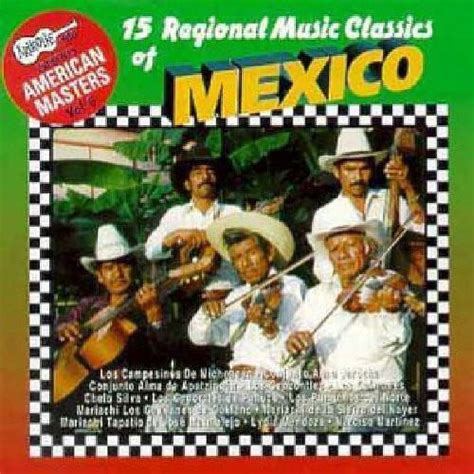The vibrant country of Mexico is home to a rich and diverse musical heritage, with a wide range of genres and styles that reflect the nation’s complex cultural identity. From the traditional mariachi bands to the modern electronic music scene, Mexico has produced a plethora of talented artists who have made significant contributions to the global music industry. In this comprehensive guide, we will delve into the world of Mexican music, exploring its history, notable artists, and the various genres that have emerged over the years.
A Brief History of Mexican Music

Mexican music has its roots in the indigenous and European traditions that have shaped the country’s cultural landscape. The arrival of the Spanish conquistadors in the 16th century introduced European instruments and musical styles, which were later influenced by African rhythms and melodies brought by enslaved Africans. This unique blend of cultures gave birth to distinct genres such as mariachi, ranchera, and norteño, which have become synonymous with Mexican music.
Traditional Mexican Music

Traditional Mexican music is characterized by its use of acoustic instruments, lively rhythms, and poignant lyrics that often tell stories of love, loss, and everyday life. some of the most renowned traditional Mexican artists include:
- Mariachi Vargas de Tecalitlán: Founded in 1897, this iconic mariachi band is considered one of the most influential and enduring ensembles in Mexican music history.
- Lola Beltrán: Known as “La Grande” (The Great One), Lola Beltrán was a legendary singer and actress who popularized traditional Mexican music worldwide.
- Jorge Negrete: A pioneer of the ranchera genre, Jorge Negrete was a charismatic singer and actor who dominated the Mexican music scene in the 1940s and 1950s.
Contemporary Mexican Music
In recent years, Mexican music has undergone a significant transformation, with the emergence of new genres and styles that blend traditional roots with modern influences. Some notable contemporary Mexican artists include:
- Maná: This rock band from Guadalajara has become one of the most successful and influential Latin American acts, known for their energetic live performances and socially conscious lyrics.
- Café Tacuba: With their unique blend of traditional Mexican music, punk, and alternative rock, Café Tacuba has gained a cult following worldwide and has been credited with helping to shape the contemporary Mexican music scene.
- Natalia Lafourcade: This talented singer-songwriter has gained international recognition for her soulful voice and eclectic style, which combines elements of folk, rock, and electronic music.
Regional Mexican Music
Mexico’s diverse regional music scenes have given rise to a variety of distinct genres, each with its own unique characteristics and styles. Some notable regional Mexican genres include:
- Norteño: Originating in the northern states of Mexico, norteño music is characterized by its use of accordions, polka rhythms, and lyrics that often tell stories of everyday life and social issues.
- Banda: Hailing from the state of Sinaloa, banda music is known for its energetic brass sections, driving rhythms, and lively danceable beats.
- Son Jarocho: This traditional genre from the state of Veracruz is characterized by its use of guitars, violins, and lively Afro-Mexican rhythms, often performed during social gatherings and celebrations.
Emerging Artists and Trends

The Mexican music scene is constantly evolving, with new artists and genres emerging all the time. Some exciting emerging trends and artists include:
- Latin American hip-hop: With its rich lyrical content and blend of traditional rhythms with modern production techniques, Latin American hip-hop has become a major force in Mexican music, with artists like Santa Fe Klan and Amenazzy gaining international recognition.
- Electronic music: Mexico’s thriving electronic music scene has given rise to a new generation of producers and DJs, such as Rebolledo and Matias Aguayo, who are pushing the boundaries of Latin American electronic music.
- Fusion and collaboration: The increasing collaboration between Mexican artists from different genres has resulted in innovative fusions, such as the blend of traditional mariachi with rock and electronic elements, as seen in the work of artists like Los Teen Tops and Panteón Rococó.
Conclusion
Mexican music is a rich and diverse cultural treasure that reflects the nation’s complex history, geography, and identity. From traditional genres like mariachi and ranchera to contemporary styles like rock, electronic, and hip-hop, Mexican music has something to offer every listener. Whether you’re a seasoned music enthusiast or just discovering the vibrant sounds of Mexico, this guide has provided a comprehensive introduction to the world of Mexican music, highlighting its most notable artists, genres, and trends.
What are some popular traditional Mexican music genres?
+Some popular traditional Mexican music genres include mariachi, ranchera, and norteño. These genres are characterized by their use of acoustic instruments, lively rhythms, and poignant lyrics that often tell stories of love, loss, and everyday life.
Who are some notable contemporary Mexican musicians?
+Some notable contemporary Mexican musicians include Maná, Café Tacuba, and Natalia Lafourcade. These artists have gained international recognition for their unique styles, which blend traditional Mexican music with modern influences like rock, electronic, and hip-hop.
What is the difference between norteño and banda music?
+Norteño and banda are two distinct regional Mexican music genres. Norteño music originates from the northern states of Mexico and is characterized by its use of accordions, polka rhythms, and lyrics that often tell stories of everyday life and social issues. Banda music, on the other hand, hails from the state of Sinaloa and is known for its energetic brass sections, driving rhythms, and lively danceable beats.
By exploring the rich and diverse world of Mexican music, listeners can gain a deeper understanding of the country’s cultural heritage and appreciate the unique contributions that Mexican artists have made to the global music scene. Whether you’re a fan of traditional genres or contemporary styles, there’s something for everyone in the vibrant and ever-evolving world of Mexican music.



